Ning Quan, Ph.D.
Our Research
The focus of my lab is how the nervous system and immune system forms a combined neuroimmune suprasystem. We are interested in understanding how these two systems communicate with each other to modulate each other's function. We use multiple techniques in molecular biology, neuroscience, and immunology to accomplish this goal. This multidisciplinary approach creates an ideal environment for training students on broad biomedical research subjects. Advanced technologies such as FACS analysis, cloning, in-cell Western, patch-clamping electrophysiology, production of transgenic mouse and targeted transgenesis, and behavioral analysis are employed in my laboratory. Our current research led to the discovery of the euflammatory process which can be used to design vaccine-based induction of immune responses as well as bacterial based cancer therapy. We are also conducting detailed analysis on cell-type specific actions mediated by IL-1R1 using several lines of transgenic animals we created. This research has led to the identification of specific pathways related to the pathogenesis of various psychopathology caused by CNS inflammation. A very exciting new area we are exploring is the direct action of the inflammatory cytokine, interleukin-1, on remodeling of neuro-circuits in the central nervous system via its receptors expressed on neurons. This research could reveal the neurophysiology of immunity and the molecular basis of neuroinflammation mediated psychopathology.

PRINCIPAL INVESTIGATOR
Ning Quan, Ph.D.
Professor of Biomedical SciencePhD, Physiology, University of Tennessee
Neurophysiology
BS, Huazhong University of Science and Technology
Biomechanics
-
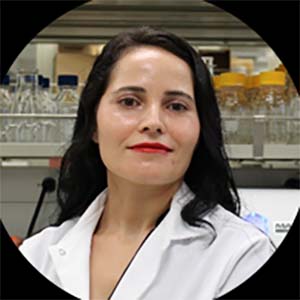
Nuran Kocak, M.S.- Graduate Student
Prior to joining the Quan lab, I pursued my Masters degree in Neuroscience at Istanbul University, Turkey, where I investigated the genetic aspects of epilepsy in human patients. Additionally, I worked in Dr. Ozdinler lab’s at Northwestern University which studies corticospinal motor neurons in neurodegenerative diseases such as Amyotrophic Lateral Sclerosis (ALS). As a PhD student in the Integrative Biology – Neuroscience program, my research is centered on the developmental patterns of the Interleukin-1 receptor expression. The mapping of IL-1R1 during development may provide key information for potential therapeutic targets for neurodevelopmental disorders such as autism spectrum disorder and epilepsy which have been link to early life inflammation. Additionally, I am interested in understanding the role of cell-specific IL-1R1 and inflammatory mediators in experimental autoimmune diseases such as multiple sclerosis.
-
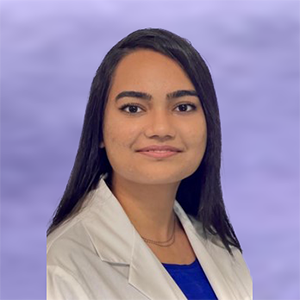
Numana Luqman – Undergraduate volunteer
I am an undergraduate student majoring in Cellular Neuroscience with a minor in Philosophy, anticipating graduation from Wilkes Honors College spring of 2024. I'm also affiliated with the Office of Undergraduate Research and Inquiry as a peer mentor, and the Council for Scholarship and Inquiry. Additionally, I'm serving as the chair of the Student Travel Committee for the arbitration of funding for student lead research endeavors. My research in the Quan lab utilizes mice with genetic reporters for Interleukin 1 (IL-1) expression thus allowing for specific and novel characterizing of IL-1 producing cells.
-
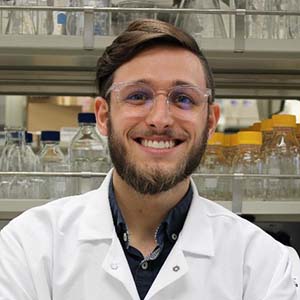
Daniel Nemeth- Postdoctoral Fellow
Originally from Cleveland, Ohio, I graduated from The Ohio State University with a double major in Biology and Neuroscience (B.S) with specialization in Cellular and Molecular Communication. I then received a Ph.D from The Ohio State University working with Dr. Ning Quan to dissect the functional mechanisms of cell type specific Interleukin-1 Receptor 1 (IL-1R1) in the central nervous system (CNS) along with researching how sub-chronic peripheral inflammation that dynamically alters microglia, the resident tissues macrophages of the CNS. Currently, I am a Postdoctoral Fellow with Dr. Ning Quan where I lead multiple avenues of research such as understanding the role of neuronal IL-1R1, characterizing the cell types in the CNS which express Interleukin-1β, and elucidating the role of non-neuronal IL- 1R1 expressing cells in an animal model of epilepsy.
-
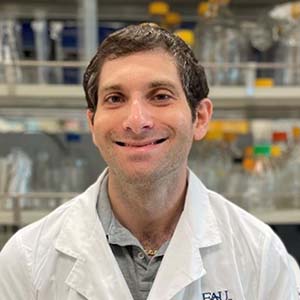
Matthew Schrier, Ph.D. - Postdoctoral Fellow
I graduated with a B.S. in Biology from University of Florida in 2013 and then went on to obtain a Ph.D. in Pharmaceutical Sciences with a specialization in Molecular Medicine and Pharmacogenomics. In my Ph.D. studies I investigated the relationship between functional deficiency of Vitamin B12 (cobalamin), thiol metabolism, and antioxidant status in Autism Spectrum Disorder. Secondarily, I studied the metabolic and transcriptional effects of supra-physiological doses of methylcobalmin on neuronal and astroglial cultures. Now, I am a Postdoctoral fellow in both Drs. Ning Quan and Randy Blakely, my work involves elucidating the immunological and neural role of the Interleukin 1 Receptor and its correlations with serotonin regulated mechanisms.
-
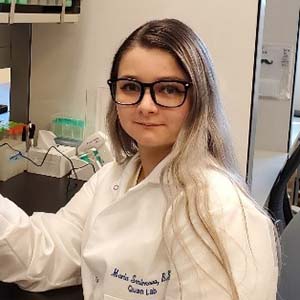
Maria Smirnova, B.S. Graduate Student
I received my B.S. in Cellular Neuroscience from the FAU Harriet L. Wilkes Honors College. Currently, I am pursuing my PhD in the Integrative Biology-Neuroscience program at the FAU Charles E. Schmidt College of Science. My research in the Quan lab focuses on the role of Interleukin 1 receptor type 1 (IL-1R1) in adult neurogenesis. Using proliferation markers and early neuronal markers, I can track the generation and subsequent development and morphology of neural stem cells in the dentate gyrus of the hippocampus. One of the main goals of my study is to pinpoint the cell-type specific IL-1R1 responsible for alterations in adult dentate gyrus neurogenesis. I am experienced in techniques such as stereotaxic craniotomy, immunohistochemistry, PCR, ELISA, Golgi-cox staining, and confocal microscopy. The implications of my work can extend to potential molecular therapeutic targets for neurodegenerative diseases to prevent neuronal loss.

CONTACT US
Ning Quan, Ph.D. | FAU Brain Institute | 5353 Parkside Drive, RF 228 | Jupiter, FL33458 | 561.799.8100 | nquan@health.fau.edu
OUR LOCATIONS:
Room 201F, MC-22
5353 Parkside Drive, Jupiter, FL 33458
Phone: 561.799.8100
Room 103A, SE-43
777 Glades Road, Boca Raton, FL 33431
Phone: 561.297.4989



